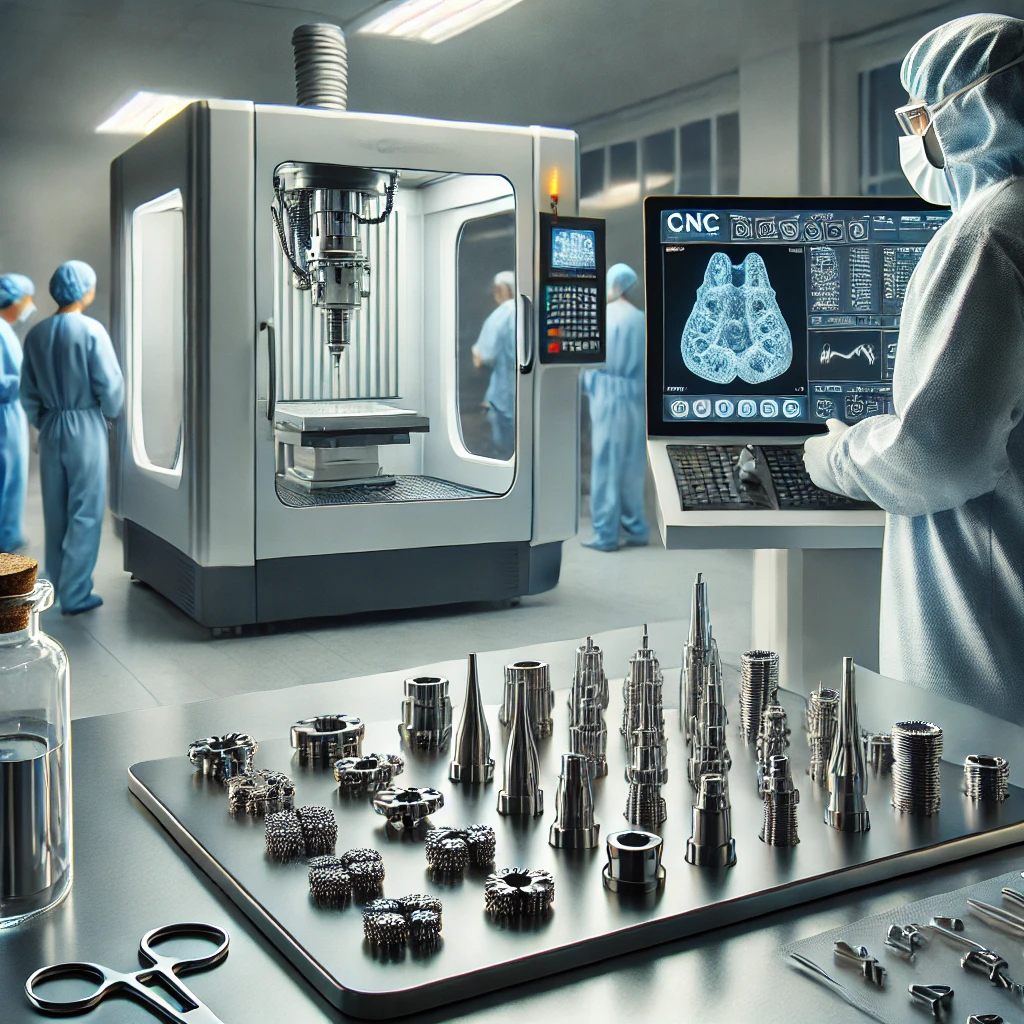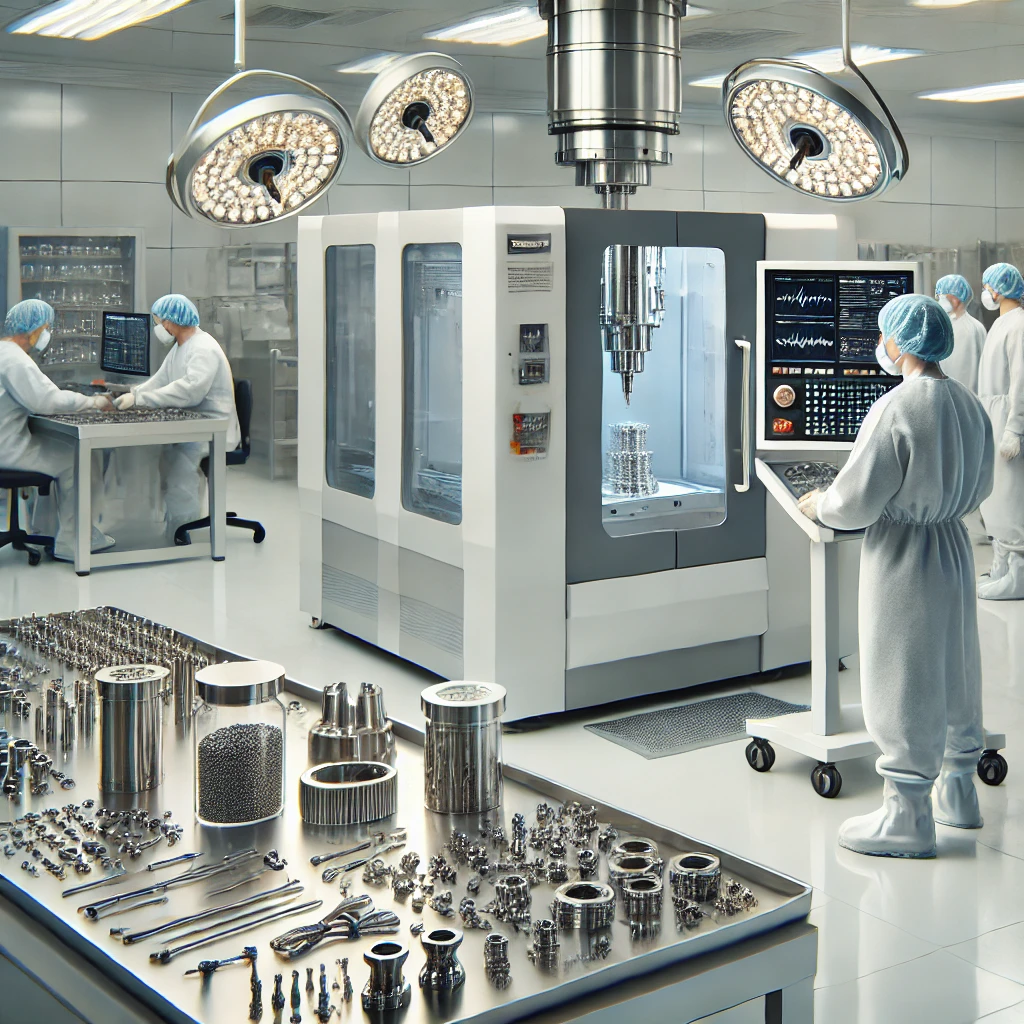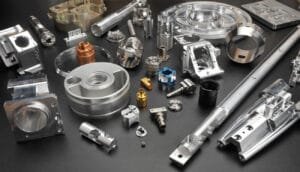High-Precision CNC Solutions are revolutionizing the medical device industry, offering superior accuracy, faster turnaround times, and the ability to create complex geometries. CNC machining is vital for producing components used in medical devices like surgical tools, implants, and diagnostic equipment. In this article, we’ll explore the latest advancements in CNC machining technologies that cater to the medical device industry, such as CNC Milled parts and CNC Turned parts, and highlight why CNCRUSH is your trusted partner in China for over 12 years in providing CNC machining services for this sector.


Why High-Precision CNC Solutions Are Crucial for the Medical Industry
The medical device industry demands perfection, as a single defect in manufacturing can lead to catastrophic outcomes in healthcare settings. High-precision CNC Solutions ensures that devices and tools meet exact tolerances, enhancing the safety and efficacy of products like implants, prosthetics, and surgical instruments. This section explains the importance of CNC machining in creating medical devices, how CNC Milled parts and CNC Turned parts are used, and highlights the advancements in multi-axis machining that ensure unparalleled precision.
Key Discussion Points:
- Need for accuracy in surgical and diagnostic tools.
- Importance of maintaining tight tolerances in medical implants.
- Role of CNC machining in scaling production without losing quality.
The Role of CNC Milled Parts in Surgical Tools Manufacturing
CNC Milled parts are integral to producing surgical tools, including forceps, clamps, and cutting devices. The precision provided by multi-axis CNC milling systems ensures that complex geometries can be achieved effortlessly. This section discusses the critical applications of CNC Milled parts in the medical industry and how companies like CNCRUSH specialize in delivering high-quality CNC milled solutions.
Key Discussion Points:
- The use of CNC Milled parts in the design of surgical instruments.
- Benefits of multi-axis CNC milling for complex shapes.
- Importance of materials used (titanium, stainless steel) in the medical industry.
CNC Turned Parts for Medical Implants and Prosthetics
CNC Turned parts play a pivotal role in creating medical implants, prosthetics, and devices that need rotational symmetry. This section will focus on the role of CNC turning technology in producing precise components for devices such as joint implants, dental prosthetics, and custom-engineered medical solutions.
Key Discussion Points:
- CNC Turned parts in producing cylindrical components like screws, pins, and prosthetic limbs.
- The importance of High-Precision CNC Solutions for rotationally symmetrical medical components.
- How CNCRUSH provides top-tier CNC Turned parts for the global medical industry.
Materials in CNC Medical Device Manufacturing
Choosing the right materials is crucial when machining medical devices. This section explores the most common materials used in medical CNC machining (titanium, stainless steel, and plastics like PEEK) and why these materials are ideal for medical applications. We’ll also discuss how CNCRUSH‘s expertise in material selection ensures the durability and biocompatibility of medical devices.
Key Discussion Points:
- Biocompatibility of materials like titanium and PEEK.
- Durability requirements for materials used in long-term implants.
- CNCRUSH’s expertise in working with high-quality materials.
| Material | Common Medical Applications | Key Properties |
|---|---|---|
| Titanium | Implants, prosthetics | Biocompatible, corrosion-resistant, lightweight |
| PEEK | Dental devices, spinal implants | High strength, low wear, biocompatible |
| Stainless Steel | Surgical tools, stents | Corrosion-resistant, durable |
Additive Manufacturing vs. CNC Machining in Medical Device Design
Additive manufacturing (3D printing) is often compared to CNC machining in medical device manufacturing. Both technologies offer unique advantages. However, CNC machining is often preferred for its precision and ability to work with metals. This section explains when CNC machining is preferable to 3D printing, particularly for high-volume, high-precision production.
Key Discussion Points:
- CNC machining’s advantages over 3D printing in terms of material strength and precision.
- Best applications for CNC machining vs. additive manufacturing.
- How CNCRUSH integrates both CNC machining and 3D printing solutions to meet client needs.
Multi-Axis High-precision CNC solutions for Complex Medical Components
Advanced multi-axis CNC machining (3, 4, and 5-axis) is crucial for producing medical components with intricate geometries. This section explores the role of multi-axis machining in producing complex parts, like joint replacements and cardiovascular devices, which require precision beyond traditional 2-axis or 3-axis systems.
Key Discussion Points:
- Differences between 3-axis, 4-axis, and 5-axis CNC machining for medical parts.
- How multi-axis machining improves precision and reduces production time.
- CNCRUSH’s expertise in providing multi-axis machining services for the medical industry.
The Importance of Quality Control in Medical CNC Machining
In medical manufacturing, quality control isn’t just an afterthought—it’s a necessity. This section explains the role of certifications like ISO 9001 and the importance of stringent quality assurance processes in ensuring medical devices meet industry standards.
Key Discussion Points:
- The role of ISO certifications in medical device manufacturing.
- How CNCRUSH maintains rigorous quality control to meet international medical standards.
- Importance of precision in preventing defects in medical devices.
| Quality Standard | Description |
|---|---|
| ISO 9001 | Quality management systems in manufacturing |
| ISO 13485 | Medical device quality management systems |
Custom CNC Solutions for the Medical Device Industry
Every medical device is unique, and this section highlights how CNCRUSH provides custom CNC machining services, from prototyping to full-scale production. Our 12 years of experience enable us to offer tailored solutions for medical devices, ensuring that each product meets the specific requirements of the healthcare sector.
Key Discussion Points:
- Custom tooling and fixturing for medical devices.
- Tailoring solutions for specific client needs.
- How CNCRUSH offers bespoke services for both CNC Milled parts and CNC Turned parts.
Reducing Time to Market with CNC Machining
Time is of the essence in medical device production. This section will discuss how CNC machining services can accelerate product development and reduce time to market through rapid prototyping, efficient production processes, and CNCRUSH’s ability to meet tight deadlines.
Key Discussion Points:
- How CNC machining reduces lead times.
- Role of CNC in rapid prototyping for medical devices.
- CNCRUSH’s proven track record in meeting delivery deadlines.
High-precision cnc solutions for Automotive and Automation Applications in Medical Manufacturing

This section explores how the automotive, machine building, and automation industries intersect with medical device manufacturing. It will cover how High-precision cnc solutions contribute to producing components for medical robots and automated diagnostic equipment.
Key Discussion Points:
- CNC machining’s role in automation for medical devices.
- Automotive technologies applied to medical manufacturing.
- Synergies between the automotive and medical sectors.
FAQ: High-precision CNC solutions for the Medical Industry
Q: What are the key benefits of High-precision cnc solutions for medical devices?
A: High-precision CNC solutions provides fast production times, and flexibility to create complex parts, which are crucial for medical devices.
Q: Why should I choose CNCRUSH for my medical device manufacturing?
A: CNCRUSH has over 12 years of experience, providing top-quality High-precision cnc solutions ensuring speed and reliability.
Q: What materials are commonly used in High-precision cnc solutions?
A: Titanium, stainless steel, PEEK, and various biocompatible plastics are commonly used.
